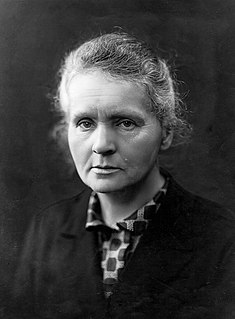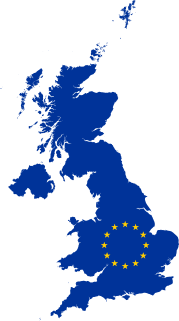Related Research Articles

Parental leave, or family leave, is an employee benefit available in almost all countries. The term "parental leave" may include maternity, paternity, and adoption leave; or may be used distinctively from "maternity leave" and "paternity leave" to describe separate family leave available to either parent to care for small children. In some countries and jurisdictions, "family leave" also includes leave provided to care for ill family members. Often, the minimum benefits and eligibility requirements are stipulated by law.
Gender mainstreaming is the public policy concept of assessing the different implications for people of different genders of any planned policy action, including legislation and programmes, in all areas and levels. Mainstreaming essentially offers a pluralistic approach that values the diversity among people of different genders.

Heidi I. Hartmann is an American feminist economist who is founder and president of the Washington-based Institute for Women's Policy Research (IWPR), a research organization created to conduct women-centered, public policy research. She is an expert on the intersection of women, economics and public policy. Dr. Hartmann is also a Research Professor at George Washington University and the editor of the Journal of Women, Politics & Policy.
Simon Sweeney is an English author and lecturer in international political economy and business based at the University of York.

The United Kingdom European Union membership referendum, commonly referred to as the EU referendum or the Brexit referendum, took place on 23 June 2016 in the United Kingdom (UK) and Gibraltar to ask the electorate whether the country should remain a member of, or leave, the European Union (EU). It was organised and facilitated through the European Union Referendum Act 2015 and the Political Parties, Elections and Referendums Act 2000. The referendum resulted in 51.9% of the votes cast being in favour of leaving the EU. Although the referendum was legally non-binding, the government of the time promised to implement the result.

The character of Polish women is shaped by Poland’s history, culture, and politics. Poland has a long history of feminist activism, and was one of the first nations in Europe to enact women's suffrage. But Poland is strongly influenced by the conservative social views of the Catholic Church.

Brexit was the withdrawal of the United Kingdom (UK) from the European Union (EU) at 23:00 GMT on 31 January 2020. The UK is the only sovereign country to have left the EU. The UK had been a member state of the union and its predecessor the European Communities (EC) since 1 January 1973. Following Brexit, EU law and the Court of Justice of the European Union no longer have primacy over British laws, except in select areas in relation to Northern Ireland. The European Union (Withdrawal) Act 2018 retains relevant EU law as domestic law, which the UK can now amend or repeal. Under the terms of the Brexit withdrawal agreement, Northern Ireland continues to participate in the European Single Market in relation to goods, and to be a de facto member of the EU Customs Union.

Anneliese Jane Dodds is a British Labour and Co-operative politician and public policy analyst serving as Shadow Secretary of State for Women and Equalities, and Chair of the Labour Party since 2021. She was Shadow Chancellor of the Exchequer from April 2020 to May 2021, the first woman to hold the position. She has been Member of Parliament (MP) for Oxford East since 2017 and was a Member of the European Parliament (MEP) for South East England from 2014 to 2017.
Leave.EU is a political campaign group that was first established to support the United Kingdom's withdrawal from the European Union in the June 2016 referendum. Founded in July 2015 as The Know, the campaign was relaunched in September of that year with its name changed to "Leave.eu" to reflect altered wording in the referendum question.

The Scottish Government has proposed holding a second referendum on Scottish independence from the United Kingdom (UK). A first referendum on independence was held in September 2014, with 55% voting "No" to independence. Ahead of that referendum, the Scottish Government stated in its white paper proposing independence that voting Yes was a "once in a generation opportunity to follow a different path, and choose a new and better direction for our nation".
The result in favour of Brexit of the 2016 United Kingdom European Union membership referendum is one of the most significant political events for Britain during the 21st century. The debate provoked major consideration to an array of topics, argued up-to, and beyond, the referendum on 23 June 2016. Factors including sovereignty, immigration, the economy and anti-establishment politics, amongst various other influences. The result of the non-legally binding referendum was that 51.8% of the votes were in favour of leaving the European Union. The formal withdrawal from the EU took place at 23:00 on 30 January 2020, almost three years after Theresa May triggered Article 50 of the Lisbon Treaty on 29 March 2017. This page provides an overarching analysis of the different arguments which were presented by both the Leave and Remain campaigns.
V. Spike Peterson is a professor of international relations in the School of Government and Public Policy at the University of Arizona, and affiliated faculty in the Department of Gender and Women's Studies, the Institute for LGBT Studies, International Studies, Human Rights Practice Program, and the Center for Latin American Studies. Her cross-disciplinary research and teaching are focused on international relations theory, gender and politics, global political economy, and contemporary social theory. Her recent publications examine the sex/gender and racial dynamics of global inequalities and insecurities and develop critical histories of ancient and modern state formation and Anglo-European imperialism in relation to marriage, migration, citizenship and nationalism. Peterson is "considered to be among the most internationally important senior scholars currently working at the intersections of International Relations, Feminist and Queer Theory, and of International Political Economy."
Victoria N. Bateman is a British feminist economist and academic, specialising in economic history. She is a fellow in economics at Gonville and Caius College, Cambridge. She is Director of Studies for the Economics Tripos at Gonville and Caius College.
Giacomo Benedetto FRSA is a British Italian political scientist and holder of a Jean Monnet Chair at Royal Holloway, University of London. He is an expert in European Union politics, and has researched and published extensively on the European Parliament, Euroscepticism, and the EU budget. Benedetto is also associate editor of the peer-reviewed European Journal of Government and Economics, and co-ordinator of the EUROSCI Network Centre in the UK.
Jacqueline Margarete Jones is a Welsh politician, barrister, and academic. She served as the Labour Party Member of the European Parliament (MEP) for Wales from 2019 to 2020. She taught law at Cardiff Law School, Cardiff University, and then at Bristol Law School, University of the West of England, where she was Professor of Feminist Legal Studies.
Edward Francis Pugh is a British politician, and businessman. He was elected as a Brexit Party Member of the European Parliament (MEP) for the Yorkshire and Humber constituency in the 2019 European parliamentary election.
Economists for Free Trade, previously called Economists for Brexit, is a lobbying group that promoted a no-deal Brexit, which is the situation where the United Kingdom leaves the European Union without a corresponding withdrawal agreement treaty. They believe the UK is better off trading on the terms of the World Trade Organization rather than within the single market and customs union. Economists for Free Trade is one of few organisations predicting a positive economic impact of a no-deal Brexit.

This article outlines the delivered and predicted impact of Brexit, the withdrawal of the United Kingdom (UK) from the European Union (EU) and the European Atomic Energy Community.
Gail Lewis is a British writer, psychotherapist, researcher, and activist. She is Visiting Senior Fellow in the Department of Gender Studies at the London School of Economics, and Reader Emerita of Psychosocial Studies at Birkbeck College. She trained as a psychodynamic psychotherapist at the Tavistock Clinic.

The anti-gender movement is an international movement which opposes what it refers to as gender ideology, gender theory, or genderism. These concepts do not have a coherent definition and cover a variety of issues; gender ideology has been described as an "empty signifier" or catch-all term "for all that conservative Catholics despise". The idea of gender ideology has been described by scholars as a moral panic or conspiracy theory, as it alleges that there is a secret cabal out to undermine society. A report by the European Parliament linked the rise of the anti-gender movement in Europe to disinformation campaigns sponsored in large part by Russia.
References
- 1 2 3 "Jean Monnet Chair". University of Surrey. 2020. Retrieved 3 May 2020.
- ↑ "Roberta Guerrina". University of Bristol. Retrieved 3 May 2020.
- ↑ "College of Europe profile". College of Europe. Retrieved 3 May 2020.
- ↑ Roberta Guerrina; Toni Haastrup; Katharine Wright (19 May 2016). "Is it really that difficult to find women to talk about the EU Referendum?". LSE blogs. London School of Economics. Retrieved 3 May 2020.
- 1 2 3 Kuus, Merje (January 2006). "Book Review Europe: History, Ideas and Ideologies". Political Geography. 25 (1): 117–119. doi:10.1016/j.polgeo.2005.06.011.
- ↑ "Review Mothering the Union: Gender politics in the EU". Reference & Research Book News. 21 (2). 1 May 2006.
- ↑ Harrison, Hannah (19 December 2018). "Did the Brexit referendum politically disengage women?". Phys.org. Retrieved 3 May 2020.
- ↑ Guerrina, Roberta (26 November 2019). "Brexit's toxic masculinities are poisoning gender politics in the General Election". LSE Blogs. London School of Economics. Retrieved 3 May 2020.
- ↑ Guerrina, Roberta (19 February 2020). "Living up to the Women, Peace and Security agenda? Gender must be a core element of Brexit negotiations". LSE Blogs. London School of Economics. Retrieved 3 May 2020.
- ↑ Gupta, Alisha Haridasani (17 January 2020). "With Brexit Looming, Experts Worry Women May Be Hit Hardest". The New York Times. Retrieved 3 May 2020.
- ↑ "Davos Warms to Trump's Results (if Not Him Personally)". The New York Times. 21 January 2020. Retrieved 3 May 2020.
- ↑ Turan, Cyan (31 January 2020). "Why Brexit may hit women harder than men". Cosmopolitan. Retrieved 3 May 2020.
- ↑ Young, Annette (31 January 2020). "Women and Brexit: Will they be hit the hardest?". France 24. Retrieved 3 May 2020.